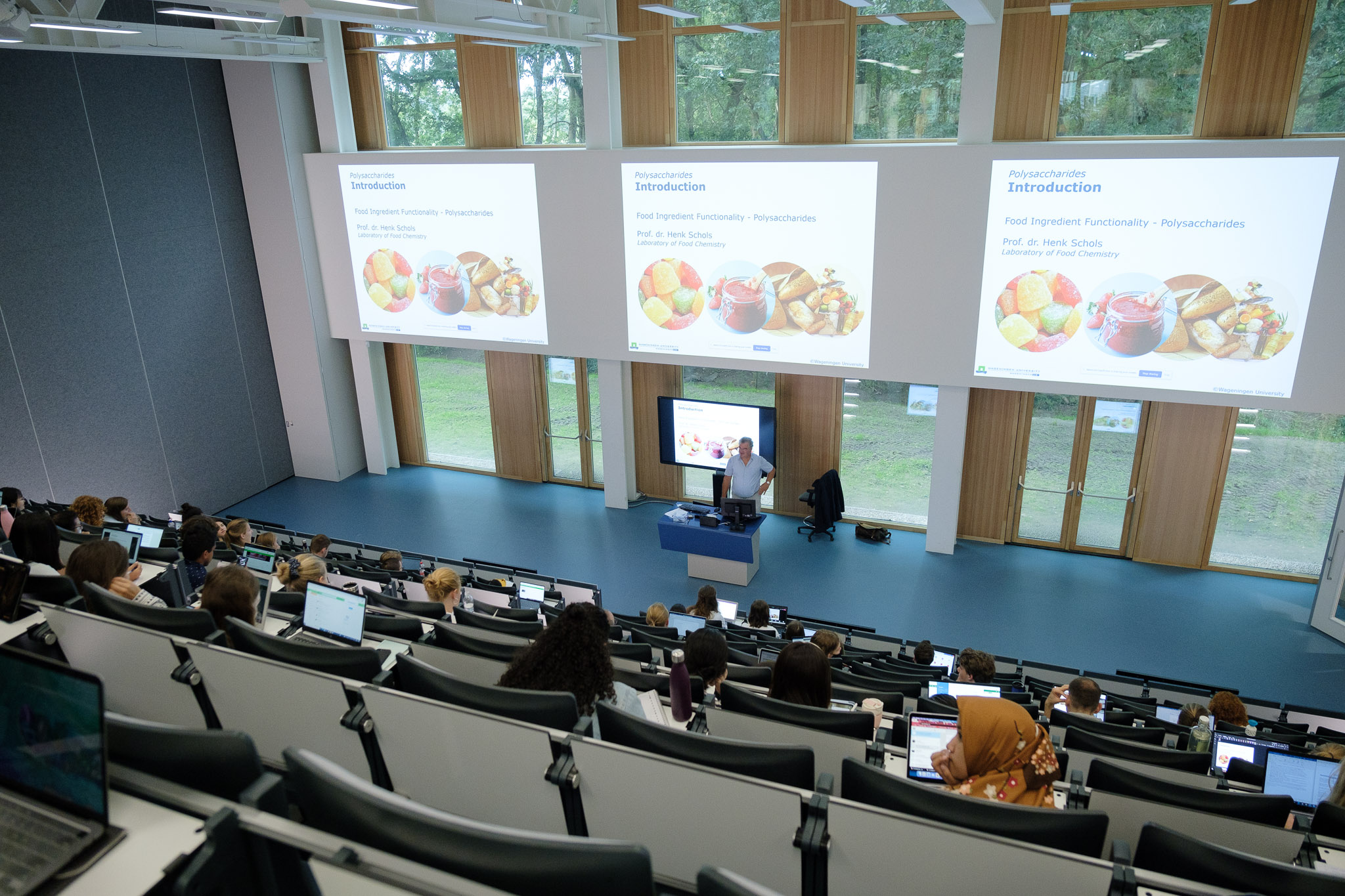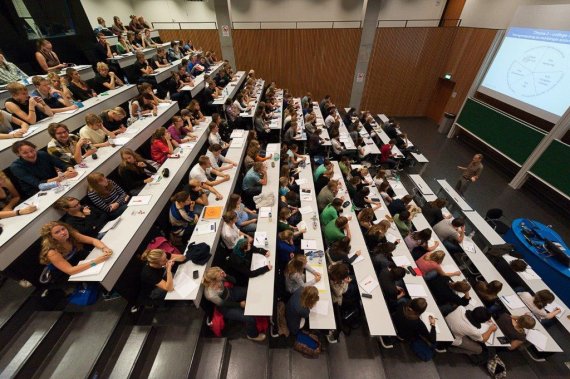| The courses were nominated on the basis of the course evaluations. An eight-member jury, led by former education dean Tiny van Boekel and consisting of four former professors and four students, selected a winner for each category. It is the second year that the Excellent Education Prizes are determined by a jury. Prize winners receive a thousand euros to invest in education. |
Basic courses: Social-Scientific Analysis of Environmental Issues
The course on ‘Social-Scientific Analysis of Environmental Issues’, taught by Mattijs Smits, deals with the differences between the social sciences and the natural sciences. It aims to make students aware of how social science theories can play a role in the analysis of environmental problems.
Advance courses: Analysis and Design of Organic Farming Systems
‘Analysis and Design of Organic Farming Systems’ is another winner. The course is coordinated by Walter Rossing, who teaches it together with 10 other lecturers. Students study the redesign of agricultural production systems from the perspective of food safety and the depletion of natural resources. According to one student, the highlight is the 10-day stay on a farm. ‘The interaction with the farmers is fantastic for linking the class material to the “real world”.’
Special courses: African Philosophy
Birgits Boogaard’s ‘African Philosophy’ course is the third winner. It deals with African perspectives on problems, solutions and innovations related to development issues. It also teaches students to critically examine their own background. One point for improvement suggested by a student: make it mandatory rather than optional.
Large courses: Structure and Function of Plants
‘Structure and Function of Plants’ (coordinated by Leonie Bentsink) is the fourth winner. This course deals with the structure, development and physiology of plants at the cellular and tissue levels and for the plant as a whole. Lecturers Hannie van der Honing and Kris van ’t Klooster give simple, enthusiastic explanations of complex topics. ‘I hadn’t realized plants could be so cool,’ wrote one student.

 Virtual applause during the de online award ceremony.
Virtual applause during the de online award ceremony.


